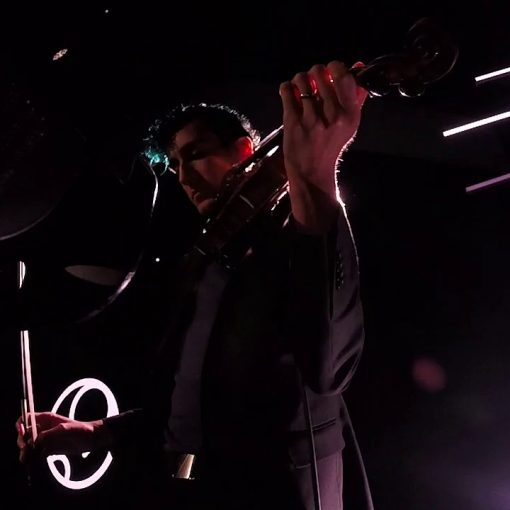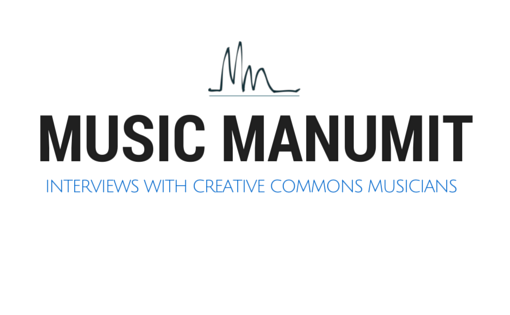Part of the reason I set up this blog was to be able to ramble about music and the music industry every now and then. I’m not 100% geek. Well… yes I am.. but part computer geek, part music geek! Anyways, I figure that I may as well start by explaining or exploring some of the ways that I think about music.
When it comes to different types of music, there are a few distinctions that I’ve come to notice which have helped me to feel comfortable with my interest in a wide variety of music while still maintaining certain standards. They’ve also helped me to better understand my musical interests and my music listening patterns and helped me find a balance that I consider healthy between being a snob and a sell-out.
By ‘types of music’ I don’t mean different musical genres, but rather different purposes, functions or goals behind the music, different categories of music. It’s nothing that isn’t really self-evident, but it’s something that I have only been actively thinking about recently.
There are different types of music just like there are different types of reading. You can read for knowledge, which can be timeless (e.g. Plato’s Dialogues) or timely (e.g. Toronto Star). You can read for instructions (e.g. reading a manual), or you can also read simply for pleasure. And there can obviously be lots of overlap between these types of reading. I think there are similar types when it comes to music.
One way of looking at things is through a comment that I heard Hayden Neale make at the Humber Songwriting Workshop a few years back. It was actually intended to be a description of the order in which a song affects the listener: first in the hips, then the heart, then the mind. The topic of discussion wasn’t really ‘types of music’, but rather the various steps that a listener will take when getting to know your music (the audience was a group of songwriters). Great music will have something to offer at all three levels. Some songs will not have the depth to affect the mind, or even the heart. Others won’t have the rhythm/vibe to get your foot tapping, to get your attention in the first place (the order is important because most people aren’t interested in music that sounds awful).
A great song should offer the listener something on all three levels – something that is pleasing to listen to, something that can inspire emotion, something that can inspire reflection. But some songs are clearly not meant to have that sort of depth. Turn on the radio – I’m sure it won’t take you long to find a good example. But one of the important things I took from the distinction is that shallow is sometimes okay. It will never be great, but it can still be appreciated sometimes. The first song that comes to mind is Harder Better Faster Stronger (Daft Punk), which is one of my favourite songs, but not a song I consider to cover all three levels mentioned. But that’s alright, because it’s not trying to cover all three levels. I mean, dance music, for example, is primarily focused on the first level; it’s purpose is just to get your feet tapping. If it can get your feet tapping, then it is good dance music. It’s not guaranteed to be great music, in the sense of being a great song offering something on all three levels, but it’s good music insofar as it’s good dance music.
In order to be forgiving where appropriate, it’s important to be aware of the intention and purpose of music as it tries to appeal to the hips, heart and mind.
The word ‘song’ is also a word that I’ve become very sensitive to over the last few years. There is an important distinction to make between music and songs: all musical works are not necessarily songs, though all songs are necessarily music. In other words, you can have music where there isn’t really a song at the core. Or, I think, more importantly in the world of popular music, when the song isn’t really the point. In terms of getting a song recorded, there are two majors forces which come into play: songwriting and production. Anything recently released by Gwen Stefani is probably adequate for finding music that is all production and very little songwriting (thinking: Hollaback Girl). Some whole genres of music are more focused on production than songwriting (e.g. rap). But that’s not a bad thing as long as you recognize it for what it is. Music that is well produced can still be good music, even if there isn’t good songwriting behind it.
A great song though is something that not only offers something for all three levels, but a great song will also do that without the help of production. A great song will still be a great song if it’s played with just voice and a piano, or just voice and a guitar. A great song can have great production, and that usually makes for a deserving radio hit, but the production is not necessary for the song to move you to dance, feel or think, even if it can increase the power of a song to inspire you in those ways.
Also, in addition to songwriting/composition and production, there is performance. Sometimes great performance can overshadow weaknesses in production or songwriting. When I was in a fiddle session with Donnell Leahy and Natalie McMaster a few years back, Donnell was telling a story about a well-known fiddle player from the east coast who Natalie had been encouraging him to see. When he finally saw the fiddle player in action, he wasn’t all that impressed. He said the guy’s technique and playing was actually pretty sloppy compared to what he’d seen elsewhere, and he didn’t understand what the big deal was about him. But he eventually realized that it was the passion that he brought to the music. It was his performance. The passion, the performance of the music is what the audience noticed and why people gravitated towards him, why they enjoyed listening to his music.
A great song with great production and great performance makes for great music. But you can still have good music if only some of the components are great.
Anyways, these thoughts are not intended to be complete. I just wanted to bring to the forefront something that’s been slowly in development in my thinking for a while. Thoughts and comments are welcome and encouraged!




2 thoughts on “Types of Music”
Hey Blaise, interesting post. You make some really good points, I’ve never really thought about what “defines” a good song before. However, I think maybe you’ve underestimated the importance that passion has in music. To me, music is all about self expression. If you can effectively express yourself, I don’t think anything else matters, you have written a great song. Whether or not others agree is another point entirely. There seems to be two approaches to song writing. Song writing for others, and song writing for yourself. I constantly struggle with this when I write music, because on one hand I really want to write music other people will like to listen to, on the other hand I want to write music that expresses how I feel. When I try too hard to write songs other people will enjoy it usually falls apart, I lose interest in the song quickly and move on to something else. I think the highest quality songs that appeal to the masses are the ones that are written as self expression but happen to have the three necessary attributes you mentioned. Tears in Heaven, is the first song that jumps to mind while I’m writing this. Anyways keep writing, the blog is interesting. But you gotta do something about the default wordpress theme 😛 Take it easy!
Yeah, great point! I added the paragraph or two about performance in there, but it wasn’t part of my original train of thought when I began the post, so I probably didn’t give it enough focus. Your distinction between writing for yourself and others is really interesting too. It reminds me of a book On Songwriting by Bob Snider. I have yet to read the book myself, but I heard him talk about it one day, and I remember him bringing up and making light of the apparent contradiction that songwriting is both about writing for yourself and writing for others. It’s definitely a difficult thing to try and balance…
And the default WordPress theme is no more! (I wasn’t aware that anyone was actually reading this blog yet, lol)